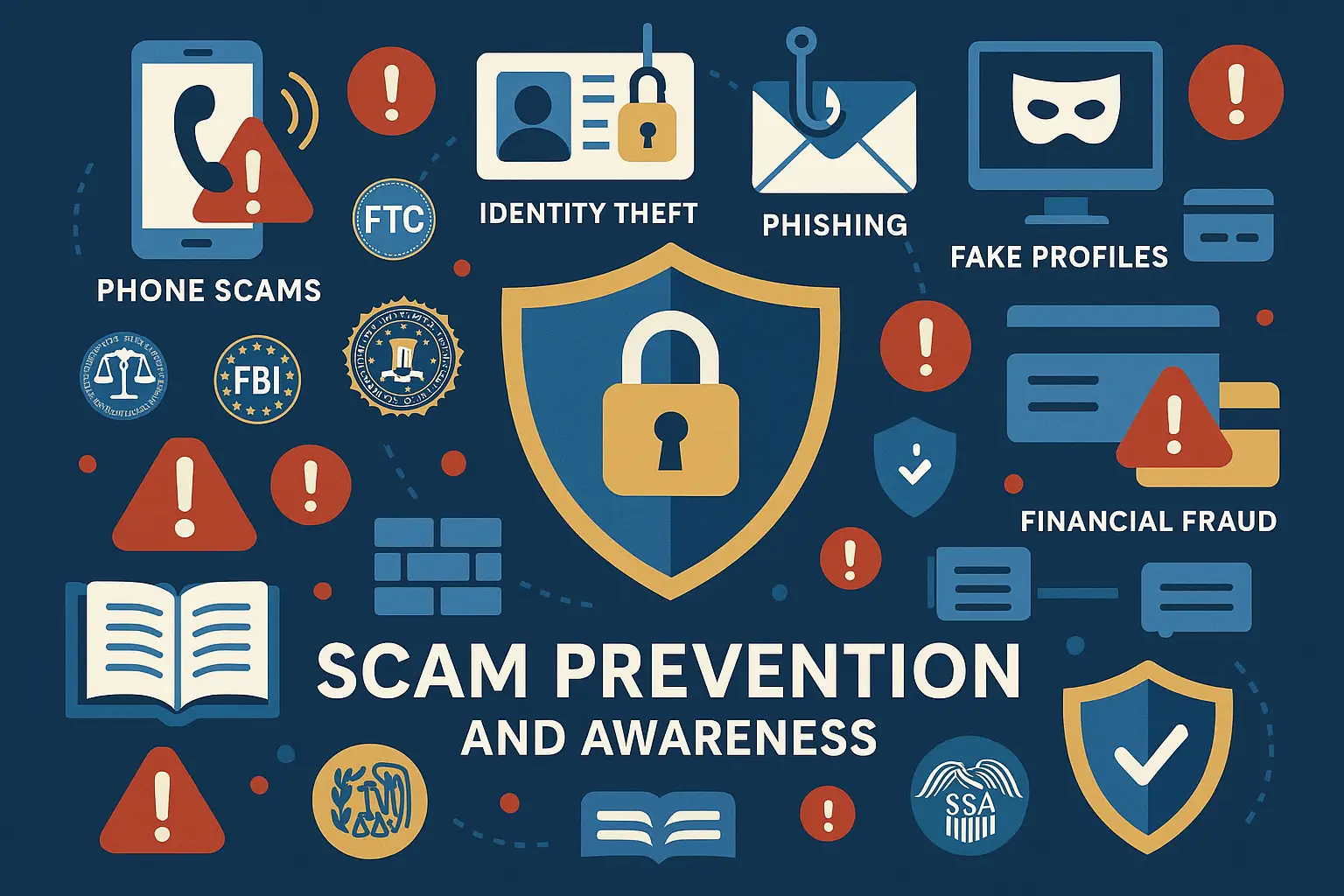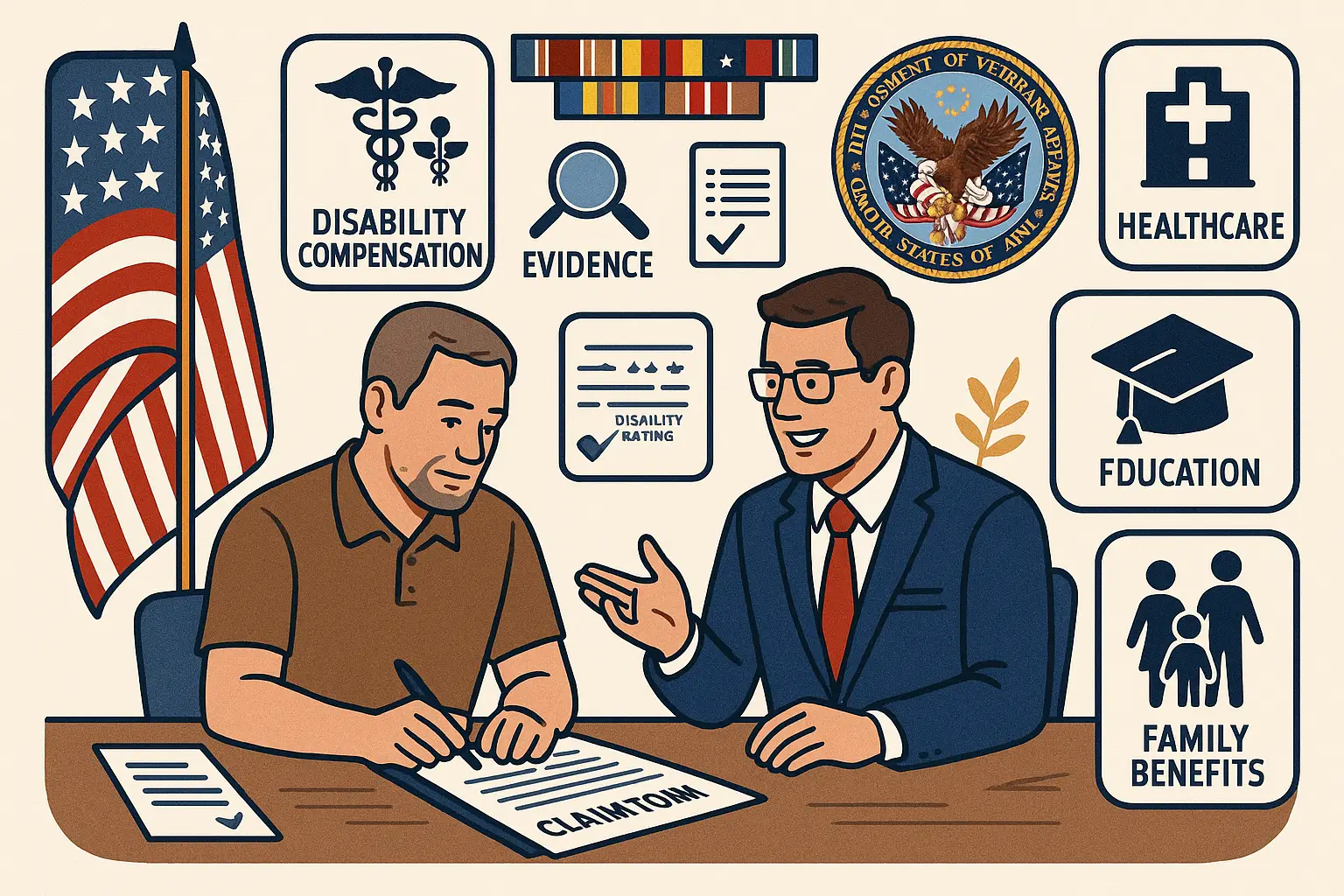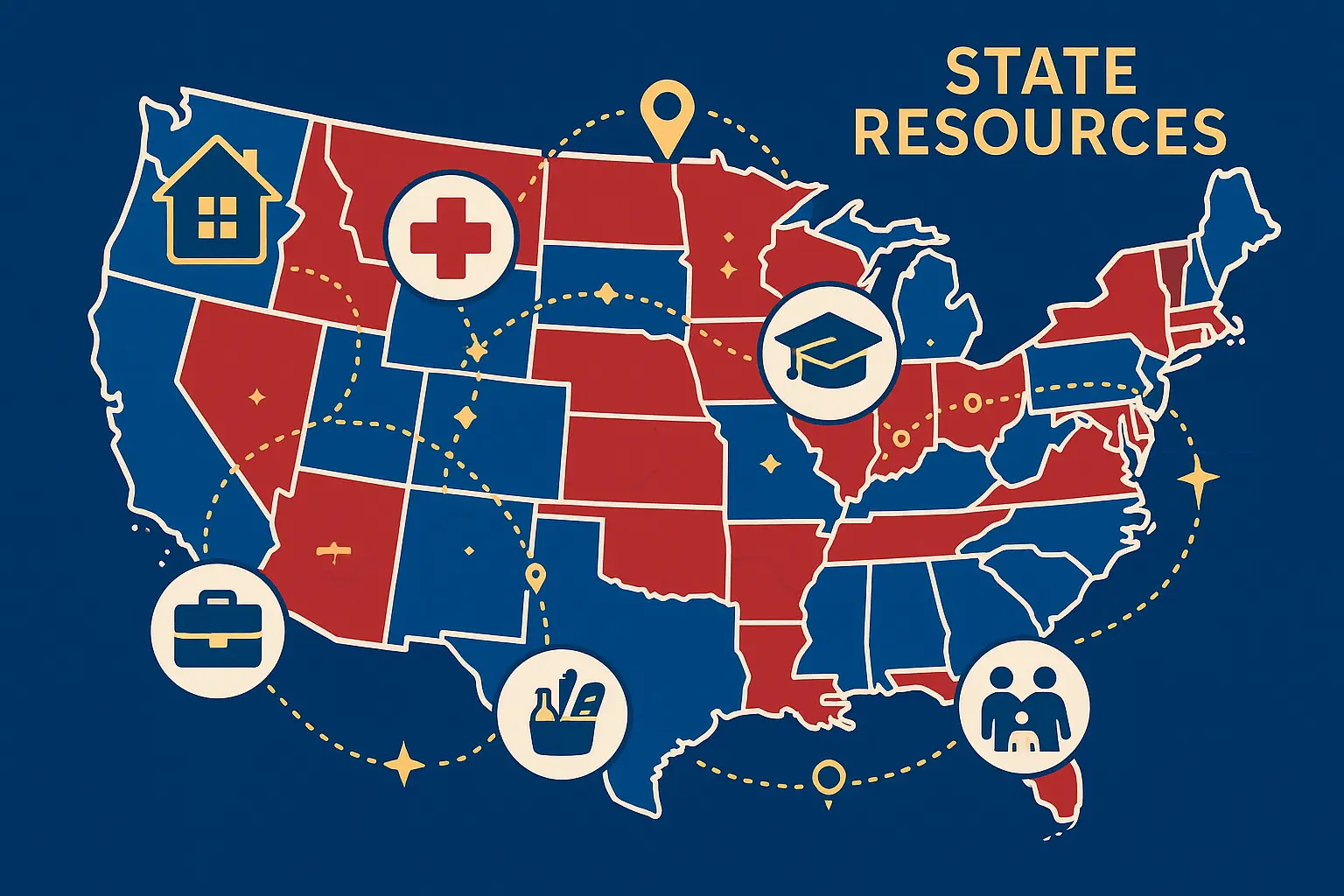Scam alerts play a crucial role in helping people recognize and avoid fraud. According to recent reports from every major government agency, scams involving money, personal information, and fake profiles are growing alarmingly. Criminals use the phone, internet, text messages, and even letters to trick victims into sending funds or revealing sensitive data such as a Social Security number or bank account details.
Staying informed about the latest scams can protect individuals, families, and businesses. Scammers often create fake profiles, pretend to be law enforcement or a government agent, or claim you missed jury duty to convince people they owe or need to deposit money immediately. Understanding the common types of scams, how to report them, and what resources exist through .gov websites ensures that victims can recover lost funds and avoid further damage.
Common Types of Scams
Scams take many forms, but a few minutes of awareness can help you recognize the warning signs. Below are common types of fraud identified by multiple government agencies:
- Identity Theft – Criminals steal personal information, such as your Social Security number or bank account, to open new accounts or claim refunds in your name.
- Phone Scams – Scammers call pretending to be from a legitimate company, department, or government agency. They may claim you owe money, missed jury duty, or must pay debt immediately.
- Phishing – Fraudulent emails, text messages, or fake websites trick you into clicking a link, downloading malware, or entering passwords and data.
- Social Media and Fake Profiles – Criminals create fake profiles on social media to trick victims into sending cash or personal details. These scams often target friendships and online relationships.
- Business and Tax Scams – Scammers convince people to deposit money into fake accounts, sell counterfeit services, or trick taxpayers into believing they owe money for unpaid taxes.
Eligibility for Government Assistance After Scams
Victims of scams may be eligible for assistance programs or fraud recovery services. Several government agencies provide resources to help people file reports, confirm claims, and access legitimate support:
- Federal Trade Commission (FTC) – The FTC provides online tools for reporting identity theft, accessing recovery programs, and learning about the latest scams. Victims can file complaints and track updates through the official IdentityTheft.gov portal.
- Social Security Administration (SSA) – The SSA offers fraud hotlines and protective measures for individuals whose Social Security number has been stolen or compromised. Reporting promptly can help prevent misuse of benefits or identity.
- Internal Revenue Service (IRS) – The IRS helps taxpayers report refund fraud, phishing attempts, and other tax-related scams. Victims can file reports through IRS Identity Theft Central.
- Law Enforcement Agencies – Local police departments and federal law enforcement offices assist victims by documenting crime reports, verifying lost funds, and issuing official records for claims and recovery.
Eligibility for these services typically requires proof of identity, a detailed scam report, and supporting documents such as letters, emails, or payment records.
Reporting and Application Process
Reporting scams promptly helps protect others and improves your chances of recovering money. The process varies by program, but common steps include:
Reporting scams promptly helps protect others from becoming victims and increases your chances of recovering lost money. While the exact steps may vary by program, most fraud recovery processes follow these general stages:
- Gather Evidence – Collect all possible proof of the scam, including emails, text messages, phone numbers, letters, payment receipts, and transaction records. Having detailed documentation strengthens your case when reporting fraud.
- File a report – Use official government websites to report the scam. For example, FTC.gov can be used for general fraud and identity theft, IC3.gov is the FBI’s reporting portal for internet crimes, and IRS.gov handles tax-related fraud.
- Submit Required Forms – Depending on the situation, you may need to complete complaint forms, fraud, or identity theft affidavits. These forms provide agencies with the necessary details to investigate and process your case.
- Wait for Review – Government agencies may take several weeks to review your submission, verify the evidence, and determine eligibility for recovery or assistance. Patience is essential, but you can check the status of your report through the agency’s official portal.
- Respond Quickly – Respond promptly if an agency requests additional information or clarification. Communication delays can slow the investigation and reduce your chances of receiving timely assistance.
Comparison of Government Programs
Different agencies provide varying levels of protection and assistance. Understanding their roles helps victims know where to start:
Prevention and Scam Avoidance Strategies
Avoiding scams requires being careful with personal information and staying aware of criminal tactics. Government agencies recommend these best practices:
- Protect Personal Information – Never confirm your Social Security number, passwords, or bank account data over the phone or internet unless you initiated the contact.
- Verify Before You Pay – If told you owe money or debt, confirm through official government websites or phone numbers, not the contact information in a suspicious call or email.
- Stay Aware Online – Avoid clicking fake links or downloading attachments from unknown sources. Always check the address bar for .gov domains when dealing with government agency websites.
- Watch for Threats – Legitimate agencies will never threaten jail for missed jury duty or demand payment in cash, gift cards, or cryptocurrency.
- Educate Friends and Family – Share scam alerts with friends, seniors, and others at risk. If victims don't change their practices, they often face repeated targeting.
Helpful Resources
- FTC Scam Alerts – The Federal Trade Commission (FTC) provides scam alerts, tools to report fraud, and recovery resources to help protect consumers from identity theft and financial loss.
- FBI IC3 Internet Crime Center – The IC3 Internet Crime Complaint Center allows victims to report cybercrime, including phishing, hacking, and online fraud, directly to the FBI for investigation.
- IRS Phishing Report – The Internal Revenue Service (IRS) provides a dedicated portal for reporting phishing emails, tax-related scams, and refund fraud.
- SSA Fraud Hotline – The Social Security Administration (SSA) operates a fraud hotline and online form where individuals can report misuse of Social Security numbers, false claims, or identity theft. Assistance is also available by phone at 1-800-269-0271.
- Benefits.gov – The official Benefits.gov website offers a personalized tool to match applicants with federal and state programs. Applicants must answer a short eligibility questionnaire.






